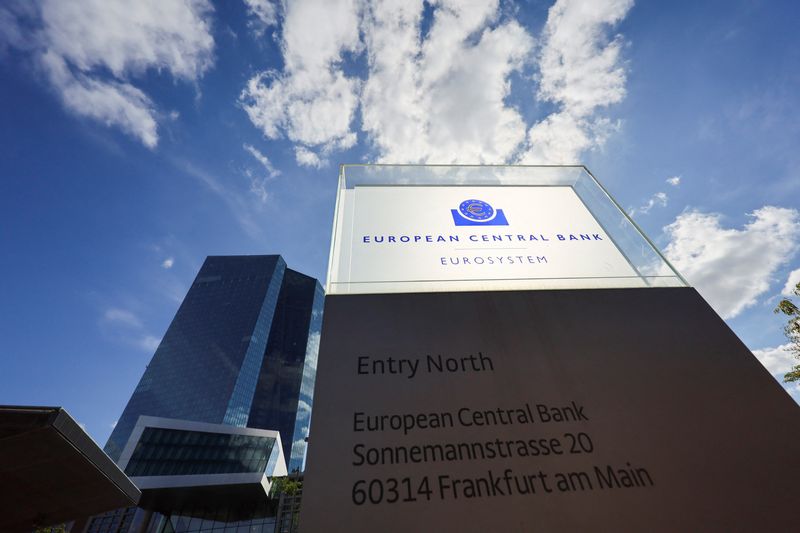BERLIN (Reuters) - The European Central Bank has fuelled inflation in the monetary union with policy that is too hesitant, according to a study by the German Institute for Economic Research DIW, seen exclusively by Reuters on Wednesday.
With a gradual increase in key interest rates from mid-2021 inflation would have gone up to a maximum of 3% instead of more than 10% in August 2022, according to the study.
As inflation rose from mid-2021 and jumped with the start of the Russian invasion of Ukraine in February 2022, the central bank initially decided against raising interest rates and it only ended its zero interest rate policy in July 2022.
"One of the reasons given by the ECB for its hesitant response was that its monetary policy could not influence energy prices," said Ben Schumann, the author of the study. "But this assumption is wrong, as our observations show. It could have tackled the last wave of inflation directly at its roots."
Monetary policy had an effect on energy prices on the global market because higher key interest rates depressed demand for energy from the eurozone, the study said.
In addition, with earlier interest rate hikes, the euro would have appreciated against the dollar, which would also have dampened energy prices, which are usually paid in the US currency on global markets, according to the study.
Many ECB policymakers acknowledged in the past that rate hikes could have come earlier but argue that the bank quickly caught up with large moves, including several 75 basis point rate hikes in the autumn of 2022.
The ECB started hiking from minus 0.5% only in July of 2022, after many of its peers were already raising rates, but the bank then delivered 10 straight hikes, taking the deposit rate to a record high 4% by the end of the summer in 2023.
"By raising interest rates, the ECB would also have made a clearer commitment to fighting inflation. This would have reduced inflationary pressure to such an extent that inflation would not have risen so sharply after the Russian war of aggression," Schumann said.
Although euro zone inflation peaked at over 10%, one of the highest rates among developed economist, most others suffered a similar inflation surge, with the U.S. rate peaking at 9.1% and the UK at 9.6% .
The key difference, most economists argue, is in Europe’s extensive reliance on imported energy, the key driver of price growth.

The DIW assumes that the reason for the ECB's hesitant stance is that the economic situation in many eurozone countries was poor following the COVID pandemic and monetary authorities were concerned about the stability of the financial sector.
Overall, if key interest rates had been raised early, euro zone gross domestic product would have been around 3 percentage points lower than it was, but would have recovered by the end of 2023, according to the institute.